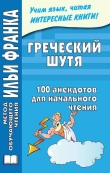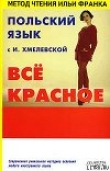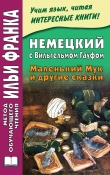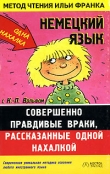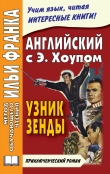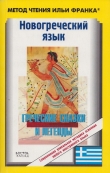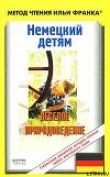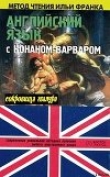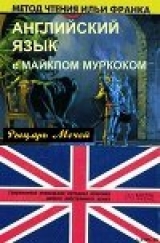
Текст книги "Английский язык с М. Муркоком"
Автор книги: Майкл Джон Муркок
Соавторы: Илья Франк,Андрей Еремин
Жанры:
Языкознание
,сообщить о нарушении
Текущая страница: 22 (всего у книги 36 страниц)
BOOK TWO (часть вторая)
In which Prince Corum receives a gift and makes a pact (в которой принц Корум получает подарок и заключает договор)
CHAPTER ONE (глава первая)
The Ambitious Sorcerer (честолюбивый колдун)
As they sailed through the night, Corum made many attempts to waken Rhalina from her trance, but nothing worked (пока они плыли всю ночь, Корум сделал множество попыток пробудить = вывести Ралину из транса, но ничего не действовало). She lay among the damp and rotting silks of a bunk and stared at the roof (она лежала среди влажных и гниющих шелков койки и смотрела неотрывно в потолок; damp – влажный, сырой; to stare at – непрерывно смотреть, уставиться; roof – крыша; потолок). Through a porthole too small to afford escape came a faint green light (через иллюминатор, слишком маленький, чтобы позволить сбежать, проникал слабый зеленый свет). Corum paced the cabin, still barely able to believe his predicament (Корум расхаживал по каюте, все еще едва способный поверить = не веря в свое затруднительное положение; to pace – шагать, расхаживать; измерять шагами).
These were plainly the dead Margrave's own quarters (эта /каюта/ явно была собственным помещением = принадлежала мертвому маркграфу; quarters – жилище, помещение, квартира). And if Corum were not here now, would the Margrave be sharing the bunk with his wife (и если бы Корума не было здесь сейчас, не разделил бы маркграф койку со своей женой) …?
porthole [ˈpɔ:thəul] afford [əˈfɔ:d] predicament [prɪˈdɪkəmənt] quarters [ˈkwɔ:təz]
As they sailed through the night, Corum made many attempts to waken Rhalina from her trance, but nothing worked. She lay among the damp and rotting silks of a bunk and stared at the roof. Through a porthole too small to afford escape came a faint green light. Corum paced the cabin, still barely able to believe his predicament.
These were plainly the dead Margrave's own quarters. And if Corum were not here now, would the Margrave be sharing the bunk with his wife…?
Corum shuddered and pressed his hand to his skull (Корум содрогнулся и прижал руку к черепу = схватился за голову), certain that he was insane or had been entranced – certain that none of this could be (уверенный, что он сумасшедший или погружен в транс – уверенный, что ничего из этого не может быть).
As a Vadhagh he was prepared for many events and situations that would have seemed strange to the Mabden (как вадаг, он был готов ко многим событиям и ситуациям, которые показались бы странными мабденам). Yet this was something that seemed completely unnatural to him (однако это было чем-то, что казалось ему совершенно неестественным/необычайным). It defied all he knew of science (оно опровергало все, что он знал о науке; to defy – бросать вызов; игнорировать, попирать /принципы/). If he were sane and all was as it seemed, then the Mabden's powers were greater than anything the Vadhagh had known (если он был в здравом уме и все было так, как казалось, тогда силы мабденов были больше, чем что-либо, известное вадагам). Yet they were dark and morbid powers, unhealthy powers that were quintessentially evil (тем не менее, это были темные и отвратительные силы, вредные силы, исполненные зла; quintessential – являющийся квинтэссенцией, наиболее типичный) …
insane [ɪnˈseɪn] science [ˈsaɪəns] quintessentially [, kwɪntɪˈsenʃ (ə) lɪ]
Corum shuddered and pressed his hand to his skull, certain that he was insane or had been entranced – certain that none of this could be.
As a Vadhagh he was prepared for many events and situations that would have seemed strange to the Mabden. Yet this was something that seemed completely unnatural to him. It defied all he knew of science. If he were sane and all was as it seemed, then the Mabden's powers were greater than anything the Vadhagh had known. Yet they were dark and morbid powers, unhealthy powers that were quintessentially evil…
Corum was tired, but he could not sleep (Корум устал, но не мог заснуть). Everything he touched was slimy and made him feel ill (все, к чему он прикасался, было липким/покрыто илом, и ему становилось плохо от этого). He tested the lock on the cabin door (он проверил замок на двери каюты). Although the wood was rotten, the door seemed unusually strong (хотя дерево было гнилым, дверь казалась необыкновенно прочной). Some other force was at work here (какая-то иная сила работала здесь). The timbers of the ship were bound by more than rivets and tar (балки корабля скреплялись /чем-то большим/, чем = не только заклепками и дегтем).
The weariness did not help his head to clear (усталость не помогала его голове проясниться = мешала размышлять). His thoughts remained confused and desperate (его мысли оставались спутанными и отчаянными). He peered frequently through the porthole, hoping to get some sort of bearing (он заглядывал часто в иллюминатор, надеясь получить какую-нибудь ориентацию = сориентироваться; bearing – направление; азимут), but it was impossible to see anything more than the occasional wave and a star in the sky (но было невозможно увидеть что-нибудь, кроме нерегулярных/возникавших время от времени волн и звезды в небе).
rivet [ˈrɪvɪt] desperate [ˈdesp (ə) rɪt] frequently [ˈfri:kwəntlɪ] bearing [ˈbeərɪŋ]
Corum was tired, but he could not sleep. Everything he touched was slimy and made him feel ill. He tested the lock on the cabin door. Although the wood was rotten, the door seemed unusually strong. Some other force was at work here. The timbers of the ship were bound by more than rivets and tar.
The weariness did not help his head to clear. His thoughts remained confused and desperate. He peered frequently through the porthole, hoping to get some sort of bearing, but it was impossible to see anything more than the occasional wave and a star in the sky.
Then, much later, he noticed the first line of grey on the horizon and he was relieved that morning was coming (потом, значительно позднее, он заметил первую серую линию на горизонте и успокоился /от того/, что наступает утро). This ship was a ship of the night (этот корабль был кораблем ночи). It would disappear with the sun and he and Rhalina would awake to find themselves in their own bed (он исчезнет с /восходом/ солнца, а он и Ралина проснутся и обнаружат себя в своей постели).
But what had frightened the barbarians (но что напугало варваров)? Or was that part of the dream (или это было частью сна)? Perhaps his collapse within the gates after his fight with Glandyth had induced a feverish dream (может быть, его падение без сознания в воротах после боя с Гландитом вызвало лихорадочное сновидение; collapse – полный упадок сил, обморочное состояние; обвал, разрушение)? Perhaps his comrades were still fighting for their lives against the Pony Tribesmen (может, его товарищи по-прежнему сражаются за свои жизни с варварами на пони). He rubbed his head with the stump of his hand (он потер голову обрубком руки). He licked his dry lips and tried to peer, once again, into the dimensions (он облизал сухие губы и попытался еще раз заглянуть в /другие/ измерения). But the other dimensions were closed to him (но другие измерения были закрыты для него). He paced the cabin, waiting for the morning (он зашагал по каюте, ожидая утра).
horizon [həˈraɪz (ə) n] relieved [rɪˈli:vd] collapse [kəˈlæps] feverish [ˈfi:v (ə) rɪʃ]
Then, much later, he noticed the first line of grey on the horizon and he was relieved that morning was coming. This ship was a ship of the night. It would disappear with the sun and he and Rhalina would awake to find themselves in their own bed.
But what had frightened the barbarians? Or was that part of the dream? Perhaps his collapse within the gates after his fight with Glandyth had induced a feverish dream? Perhaps his comrades were still fighting for their lives against the Pony Tribesmen. He rubbed his head with the stump of his hand. He licked his dry lips and tried to peer, once again, into the dimensions. But the other dimensions were closed to him. He paced the cabin, waiting for the morning.
But then a strange droning sound came to his ears (но затем странный жужжащий звук дошел до его ушей; to drone – жужжать, гудеть; монотонно говорить). It made his brain itch (он заставил его мозг зудеть). He wrinkled his scalp (Корум поморщился; scalp – кожа черепа, кожа головы). He rubbed his face (он потер лицо). The droning increased (жужжание усилилось). His ears ached (его уши заболели). His teeth were on edge (зубы заломило; to be on edge – быть раздраженным; нервничать; edge – кромка, край). The volume grew (громкость /звука/ возросла; volume – объем, масса; величина; уровень громкости).
He put his good hand to one ear and covered the other with his arm (он приложил /ладонь/ здоровой руки к одному уху и прикрыл другое /покалеченной/ рукой). Tears came into his eye (слезы выступили в глазу). In the socket where the other eye had been a huge pain pulsed (в глазнице, где /раньше/ был другой глаз, страшная боль пульсировала).
He stumbled from side to side of the rotting cabin and even attempted to break through the door (он ходил, спотыкаясь, из одной стороны гниющей каюты в другую и даже попытался пробиться через = выломать дверь).
But his senses were leaving him (но чувства покидали его). The scene grew dim (сцена = все вокруг померкло/потускнело) …
ached [ˈeɪkɪd] volume [ˈvɔlju:m] scene [si:n]
But then a strange droning sound came to his ears. It made his brain itch. He wrinkled his scalp. He rubbed his face. The droning increased. His ears ached. His teeth were on edge. The volume grew.
He put his good hand to one ear and covered the other with his arm. Tears came into his eye. In the socket where the other eye had been a huge pain pulsed.
He stumbled from side to side of the rotting cabin and even attempted to break through the door.
But his senses were leaving him. The scene grew dim…
… He stood in a dark hall with walls of fluted stone (он стоял в темном зале со стенами из волнистого камня) which curved over his head and touched to form the roof, high above (которые изгибались над его головой и образовывали крышу высоко над /ним/). The workmanship of the hall was equal to anything the Vadhagh had created, but it was not beautiful (мастерство изготовления зала равнялось всему, что вадаги создали = было сравнимо с /мастерством/ вадагов, но зал не был красивым). Rather, it was sinister (скорее, он был зловещим).
His head ached (его голова болела).
The air before him shimmered with a pale blue light and then a tall youth stood there (воздух перед ним замерцал бледно-голубым светом, а затем высокий юноша стоял там = возник). The face was young, but the eyes were ancient (лицо было молодым, но глаза – старые). He was dressed in a simple flowing gown of yellow samite (он был одет в простую ниспадавшую мантию из желтой парчи). He bowed, turned his back, walked a little way (он поклонился, повернулся /спиной/, прошел немного) and then sat down on a stone bench that had been built into the wall (а потом сел на каменную скамью, которая была вделана в стену; to build into).
Corum frowned (нахмурился).
fluted [ˈflu:tɪd] equal [ˈi:kwəl] sinister [ˈsɪnɪstə] gown [ɡaun]
… He stood in a dark hall with walls of fluted stone which curved over his head and touched to form the roof, high above. The workmanship of the hall was equal to anything the Vadhagh had created, but it was not beautiful. Rather, it was sinister.
His head ached.
The air before him shimmered with a pale blue light and then a tall youth stood there. The face was young, but the eyes were ancient. He was dressed in a simple flowing gown of yellow samite. He bowed, turned his back, walked a little way and then sat down on a stone bench that had been built into the wall.
Corum frowned.
`You believe you dream, Master Corum (ты думаешь, что спишь, господин Корум; Master – мастер, господин /в обращении к юноше; ставится перед именем или перед фамилией старшего сына/)?
`I am Prince Corum in the Scarlet Robe, last of the Vadhagh race (я принц Корум в Алом плаще, последний из расы вадагов).
`There are no other princes here, but me (здесь нет других принцев, кроме меня), said the youth softly (сказал юноша мягко). `I will allow none (я не позволю никаких /других/). If you understand that, there will be no tension between us (если ты поймешь это, между нами не будет напряжения = мы с тобой поладим).
Corum shrugged (пожал /плечами/).
`I believe I dream, yes (думаю, я сплю, да).
`In a sense you do, of course (в некотором смысле – да, конечно). As we all dream (как мы все видим сны). For some while, Vadhagh, you have been trapped in a Mabden dream (на какое-то время, вадаг, ты попался в мабденский сон). The rules of the Mabden control your fate and you resent it (правила мабденов управляют твоей судьбой, а ты возмущаешься этому).
youth [ju:Ɵ] tension [ˈtenʃ (ə) n] resent [rɪˈzent]
`You believe you dream, Master Corum?
`I am Prince Corum in the Scarlet Robe, last of the Vadhagh race.
`There are no other princes here, but me, said the youth softly. `I will allow none. If you understand that, there will be no tension between us.
Corum shrugged.
`I believe I dream, yes.
`In a sense you do, of course. As we all dream. For some while, Vadhagh, you have been trapped in a Mabden dream. The rules of the Mabden control your fate and you resent it.
`Where is the ship that brought me here (где корабль, который доставил меня сюда; to bring)? Where is Rhalina?
`The ship cannot sail by day (корабль не может плыть днем). It has returned to the depths (он вернулся на дно: «в глубины»).
`Rhalina?
The youth smiled (юноша улыбнулся).
`She has gone with it, of course (она отправилась с ним, разумеется). That was the bargain she made (такой была сделка, /которую/ она заключила).
`Then she is dead (тогда она мертва)?
`No. She lives (она живет).
`Where is the ship that brought me here? Where is Rhalina?
`The ship cannot sail by day. It has returned to the depths.
`Rhalina?
The youth smiled.
`She has gone with it, of course. That was the bargain she made.
`Then she is dead?
`No. She lives.
`How can she live when she is below the surface of the ocean (как может она жить, когда она под поверхностью океана)!
`She lives. She always will (она всегда будет жить). She cheers the crew enormously (она очень веселит экипаж; to cheer – создавать хорошее настроение, веселить).
`Who are you (кто ты)?
`I believe you have guessed my name (полагаю, ты догадался, /как/ мое имя).
`Shool-an-Jyvan (Шул-ан-Дживан).
'Prince Shool-an-Jyvan, Lord of All That Is Dead In The Sea – one of my several titles (повелитель всего мертвого в море – один из нескольких моих титулов).
`Give me back Rhalina (верни мне Ралину).
`I intend to (я собираюсь /это сделать/).
ocean [ˈəuʃ (ə) n] enormously [ɪˈnɔ:məslɪ] guessed [ɡest]
`How can she live when she is below the surface of the ocean!
`She lives. She always will. She cheers the crew enormously.
`Who are you?
`I believe you have guessed my name.
`Shool-an-Jyvan.
'Prince Shool-an-Jyvan, Lord of All That Is Dead In The Sea – one of my several titles.
`Give me back Rhalina.
`I intend to.
Corum looked suspiciously at the sorcerer (Корум посмотрел подозрительно на колдуна).
`What?
`You do not think I would bother to answer such a feeble attempt at a Summoning as the one she made, do you (ты же не думаешь, что я стал бы беспокоиться, чтобы ответить = откликаться на столь слабую попытку /произнести/ Заклинание, не так ли; to summon – вызывать, созывать), if I did not have other motives in mind (если бы у меня не было иных причин = планов на уме)?
`Your motive is clear (твой мотив ясен). You relished the horror of her predicament (ты наслаждаешься ужасом ее затруднительного положения; to relish – получать удовольствие /от чего-либо/, наслаждаться).
`Nonsense (вздор). Am I so childish (неужели я настолько ребяческий/несерьезный = дурачусь)? I have outgrown such things (я перерос подобные вещи). I see you are beginning to argue in Mabden terms (вижу, ты начинаешь спорить в выражениях мабденов = пользуешься понятиями мабденов). It is just as well for you, if you wish to survive in this Mabden dream (что ж, для тебя это хорошо, если хочешь выжить в этом мабденском сне; it is just as well – тем лучше, ну что ж, пусть будет так).
`It is a dream (это сон) …?
suspiciously [səˈspɪʃəslɪ] answer [ˈɑ:nsə] relished [ˈrelɪʃt] argue [ˈɑ:ɡju:]
Corum looked suspiciously at the sorcerer.
`What?
`You do not think I would bother to answer such a feeble attempt at a Summoning as the one she made, do you, if I did not have other motives in mind?
`Your motive is clear. You relished the horror of her predicament.
`Nonsense. Am I so childish? I have outgrown such things. I see you are beginning to argue in Mabden terms. It is just as well for you, if you wish to survive in this Mabden dream.
`It is a dream…?
`Of sorts (своего рода). Real enough (довольно реальный). It is what you might call the dream of a God (это то, что ты можешь назвать сном Бога). There again you might say that it is a dream that a God has allowed to become reality (с другой стороны, ты можешь сказать, что это сон, которому Бог позволил стать реальностью). I refer of course to the Knight of the Swords who rules the Five Planes (я, разумеется, имею в виду Рыцаря Мечей, который правит этими Пятью Плоскостями; to refer to – ссылаться на).
`The Sword Rulers (Повелители Мечей)! They do not exist (они не существуют). It is a superstition once entertained by the Vadhagh and the Nhadragh (это суеверие, некогда поддерживаемое вадагами и надрагами; to entertain – занимать, развлекать; питать /надежду/, лелеять /мечту/).
`The Sword Rulers do exist, Master Corum (Повелители Мечей действительно существуют, господин Корум). You have one of them, at least, to thank for your misfortunes (по крайней мере, одного из них тебе следует поблагодарить за твои беды). It was the Knight of the Swords who decided to let the Mabden grow strong and destroy the Old Races (именно Рыцарь Мечей решил позволить мабденам усилиться и уничтожить древние расы).
`Why (почему)?
reality [rɪˈælɪtɪ] refer [rɪˈfə: ] exist [ɪɡˈzɪst] misfortune [mɪsˈfɔ:ʧ (ə) n]
`Of sorts. Real enough. It is what you might call the dream of a God. There again you might say that it is a dream that a God has allowed to become reality. I refer of course to the Knight of the Swords who rules the Five Planes.
`The Sword Rulers! They do not exist. It is a superstition once entertained by the Vadhagh and the Nhadragh.
`The Sword Rulers do exist, Master Corum. You have one of them, at least, to thank for your misfortunes. It was the Knight of the Swords who decided to let the Mabden grow strong and destroy the Old Races.
`Why?
`Because he was bored by you (потому что вы ему наскучили). Who would not be (а кому бы /вы/ не наскучили)? The world has become more interesting now, I’m sure you will agree (мир стал гораздо интереснее теперь, уверен, ты согласишься).
`Chaos and destruction is «interesting» (хаос и разрушение – интересны)? Corum made an impatient gesture (Корум сделал нетерпеливый жест). `I thought you had outgrown such childish ideas (я думал, ты перерос подобные ребяческие мысли).
Shool-an-Jyvan smiled.
`Perhaps I have (возможно). But has the Knight of the Swords (но /перерос ли/ Рыцарь Мечей)?
`You do not speak plainly, Prince Shool (ты не говоришь ясно).
chaos [ˈkeɪɔs] impatient [ɪmˈpeɪʃ (ə) nt] sword [sɔ:d]
`Because he was bored by you. Who would not be? The world has become more interesting now, I’m sure you will agree.
`Chaos and destruction is «interesting»? Corum made an impatient gesture. `I thought you had outgrown such childish ideas.
Shool-an-Jyvan smiled.
`Perhaps I have. But has the Knight of the Swords?
`You do not speak plainly, Prince Shool.
`True (верно). A vice I find impossible to give up (недостаток, который я нахожу невозможным = от которого мне невозможно избавиться = не хочется отказаться; vice – зло, порок, недостаток). Still, it enlivens a dull conversation sometimes (однако, это оживляет скучную беседу иногда).
`If you are bored with this conversation, return Rhalina to me and I will leave (если тебе наскучила эта беседа, верни мне Ралину, и я уйду).
Shool smiled again (Шул снова улыбнулся).
`I have it in my power to bring Rhalina back to you and to set you free (в моей власти вернуть тебе Ралину и освободить тебя). That is why I let Master Moidel answer her Summoning (именно поэтому я позволил господину Мойделу ответить на ее призыв). I wished to meet you, Master Corum (я хотел встретиться с тобой, господин Корум).
`You did not know I would come (ты не знал, что я приду).
`I thought it likely (я подумал, это вероятно; to think).
`Why did you wish to meet me (почему ты хотел встретиться со мной)?
enliven [ɪnˈlaɪvn] leave [li:v]
`True. A vice I find impossible to give up. Still, it enlivens a dull conversation sometimes.
`If you are bored with this conversation, return Rhalina to me and I will leave.
Shool smiled again.
`I have it in my power to bring Rhalina back to you and to set you free. That is why I let Master Moidel answer her Summoning. I wished to meet you, Master Corum.
`You did not know I would come.
`I thought it likely.
`Why did you wish to meet me?
`I have something to offer you (у меня есть кое-что, чтобы предложить тебе). In case you refused my gift, I thought it wise to have Mistress Rhalina on hand (на тот случай, если ты откажешься от моего дара, я подумал, целесообразно использовать Ралину; on hand – имеющийся в распоряжении, на руках).
`And why should I refuse a gift (а почему я должен отказаться от дара)?
Shool shrugged.
`My gifts are sometimes refused (от моих даров иногда отказываются). Folk are suspicious of me (люди относятся с недоверием ко мне). The nature of my calling disturbs them (природа моей профессии/занятия тревожит их). Few have a kind word for a sorcerer, Master Corum (у немногих есть доброе слово для колдуна, господин Корум).
refused [rɪˈfju:zd] wise [waɪz] sorcerer [ˈsɔ:s (ə) rə]
`I have something to offer you. In case you refused my gift, I thought it wise to have Mistress Rhalina on hand.
`And why should I refuse a gift?
Shool shrugged.
`My gifts are sometimes refused. Folk are suspicious of me. The nature of my calling disturbs them. Few have a kind word for a sorcerer, Master Corum.
Corum peered around him in the gloom (Корум поглядел вокруг себя = огляделся во мраке).
`Where is the door (где дверь)? I will seek Rhalina myself (я буду искать Ралину сам). I am very weary, Prince Shool (я очень устал, принц Шул).
`Of course you are (конечно, ты устал). You have suffered much (ты много страдал). You thought your own sweet dream a reality and you thought reality a dream (ты думал, твой собственный сладкий сон – реальность, а реальность – сон). A shock (потрясение). There is no door (здесь нет двери). I have no need of them (я не нуждаюсь в них). Will you not hear me out (разве ты не хочешь выслушать меня до конца)?
`If you choose to speak in a less elliptical manner, aye (если ты предпочтешь говорить менее эллиптическим образом = не так витиевато, то да).
weary [ˈwɪ (ə) rɪ] elliptical [ɪˈlɪptɪk (ə) l]
Corum peered around him in the gloom.
`Where is the door? I will seek Rhalina myself. I am very weary, Prince Shool.
`Of course you are. You have suffered much. You thought your own sweet dream a reality and you thought reality a dream. A shock. There is no door. I have no need of them. Will you not hear me out?
`If you choose to speak in a less elliptical manner, aye.
`You are a poor guest, Vadhagh (ты плохой гость, вадаг). I thought your race a courteous one (я думал, твой народ учтивый).
`I am no longer typical (я больше не типичный /представитель его/).
`A shame that the last of a race should not typify its virtues (позор, /что/ последний из народа не олицетворяет его добродетелей; shame – стыд; позор, бесчестье; to typify – служить типичным примером; олицетворять). However, I am, I hope, a better host and I will comply with your request (однако, я, надеюсь, лучший хозяин /чем ты гость/ и исполню твою просьбу; to comply with – соответствовать; выполнять; подчиняться). I am an ancient being (я – древнее существо). I am not of the Mabden and I am not of the folk you call the Old Races (я не из /племени/ мабденов, и не из народа, который ты называешь древними расами). I came before you (я появился раньше тебя; to come before – предшествовать). I belonged to a race which began to degenerate (я принадлежу к расе, которая начала вырождаться). I did not wish to degenerate and so I concerned myself with the discovery of scientific ways (я не пожелал выродиться и потому занялся открытием научных методов; to concern oneself with something – интересоваться, заниматься чем-либо) in which I could preserve my mind – in all its wisdom (в которых = благодаря которым я мог сохранить рассудок – во всей его мудрости/со всеми знаниями; wisdom – мудрость; знания, образованность).
courteous [ˈkə: tɪəs] virtue [ˈvə: tju:] request [rɪˈkwest] degenerate [dɪˈʤenəreɪt]
`You are a poor guest, Vadhagh. I thought your race a courteous one.
`I am no longer typical.
`A shame that the last of a race should not typify its virtues. However, I am, I hope, a better host and I will comply with your request. I am an ancient being. I am not of the Mabden and I am not of the folk you call the Old Races. I came before you. I belonged to a race which began to degenerate. I did not wish to degenerate and so I concerned myself with the discovery of scientific ways in which I could preserve my mind – in all its wisdom.
I discovered the means to do such a thing, as you see (я нашел способ делать такую вещь = осуществить это, как видишь). I am, essentially, pure mind (я, по существу, чистый разум). I can transfer myself from one body to another, with some effort, and thus am immortal (я могу перемещаться из одного тела в другое = менять облик, и, таким образом, я бессмертен). Efforts have been made to extinguish me, over the millennia, but they have never been successful (предпринимались попытки уничтожить меня, в течение тысячелетий, но они никогда не были успешными; to extinguish – погасить, ликвидировать /пожар/; уничтожить). It would have involved the destruction of too much (это привело бы к разрушению слишком многого). Therefore I have, generally speaking, been allowed to continue my existence and my experiments (поэтому мне, вообще говоря, позволили продолжать мои существование и эксперименты). My wisdom has grown (знания мои возросли). I control both Life and Death (я повелеваю и Жизнью, и Смертью). I can destroy and I can bring back to life (я могу уничтожить, а могу и оживить: «вернуть к жизни»). I can give other beings immortality, if I choose (могу дать другим существам бессмертие, если пожелаю).
extinguish [ɪkˈstɪŋɡwɪʃ] existence [ɪɡˈzɪst (ə) ns] immortality [, ɪmɔ:ˈtælɪtɪ]
I discovered the means to do such a thing, as you see. I am, essentially, pure mind. I can transfer myself from one body to another, with some effort, and thus am immortal. Efforts have been made to extinguish me, over the millennia, but they have never been successful. It would have involved the destruction of too much. Therefore I have, generally speaking, been allowed to continue my existence and my experiments. My wisdom has grown. I control both Life and Death. I can destroy and I can bring back to life. I can give other beings immortality, if I choose.
By my own mind and my own skill I have become, in short, a God (с помощью моего собственного разума и умения = ловкости я стал, вкратце /говоря/, богом). Perhaps not the most powerful of Gods – but that will come eventually (возможно, не самым могущественным богом – но это произойдет в конце концов). Now you will understand that the Gods who simply (теперь ты понимаешь, что боги, которые просто) – Shool spread his hands (Шул раскинул руки) – `popped into existence – who exist only through some cosmic fluke – why, they resent me (вдруг возникли – которые существуют только по какой-то космической случайности – и я им не нравлюсь; to pop into – неожиданно появиться; заглянуть; fluke – удача, везение, счастливая случайность; why – выражает удивление, несогласие, возражение и т. д. /ну, да ведь и др. /). They refuse to acknowledge my Godhood (они отказываются признать мою божественность). They are jealous (они ревнуют/завидуют). They would like to have done with me for I disturb their self-esteem (они хотели бы разделаться со мной, потому что я задеваю их самолюбие; self-esteem – самоуважение; чувство собственного достоинства; самомнение). The Knight of the Swords is my enemy (Рыцарь Мечей – мой враг). He wishes me dead (он желает, чтобы я был мертв). So, you see, we have much in common, Master Corum (итак, видишь ли, у нас много общего, господин Корум).
`I am no «God», Prince Shool (я не «бог», принц Шул). In fact, until recently, I had no belief in gods, either (по сути, до недавнего времени я не верил в богов также = вообще).
fluke [flu:k] resent [rɪˈzent] jealous [ˈʤeləs] enemy [ˈenəmɪ] recently [ˈri:s (ə) ntlɪ] belief [bɪˈli:f]
By my own mind and my own skill I have become, in short, a God. Perhaps not the most powerful of Gods – but that will come eventually. Now you will understand that the Gods who simply' – Shool spread his hands – `popped into existence – who exist only through some cosmic fluke – why, they resent me. They refuse to acknowledge my Godhood. They are jealous. They would like to have done with me for I disturb their self-esteem. The Knight of the Swords is my enemy. He wishes me dead. So, you see, we have much in common, Master Corum.
`I am no «God», Prince Shool. In fact, until recently, I had no belief in gods, either.
`The fact that you are not a God, Master Corum, is evident from your obtuseness (то, что ты не бог, господин Корум, очевидно из твоей глупости; obtuse – /мат. / тупой, тупоугольный; тупой, глупый; бестолковый). That is not what I meant (это не то, что я имел в виду). What I did mean was this – we are both the last representatives of races (что я действительно имел в виду, так это – мы оба являемся последними представителями народов) whom, for reasons of their own, the Sword Rulers decided to destroy (которые, по каким-то своим причинам, Повелители Мечей решили уничтожить). We are both, in their eyes, anachronisms which must be eradicated (мы оба в их глазах – анахронизмы/пережитки, которые должны быть истреблены; to eradicate – вырывать с корнем, искоренять). As they replaced my folk with the Vadhagh and the Nhadragh (как они заменили мой народ вадагами и надрагами), so they are replacing the Vadhagh and the Nhadragh with the Mabden (так теперь они заменяют вадагов и надрагов мабденами). A similar degeneration is taking place in your people (похожее вырождение происходит в твоем народе) – forgive me if I associate you with the Nhadragh – as it did in mine (прости, что я объединяю тебя с надрагами, – как это произошло в моем). Like me, you have attempted to resist this, to fight against it (как и я, ты попытался сопротивляться этому, сражаться против него). I chose science – you chose the sword (я выбрал науку /в качестве средства борьбы/, а ты выбрал меч). I will leave it to you to decide which was the wisest choice (я оставлю это тебе решать = сам решай, какое /из них/ – самый разумный выбор) …
